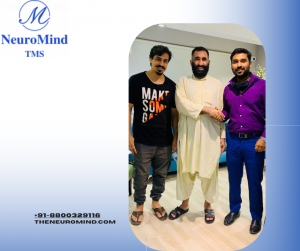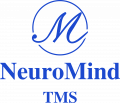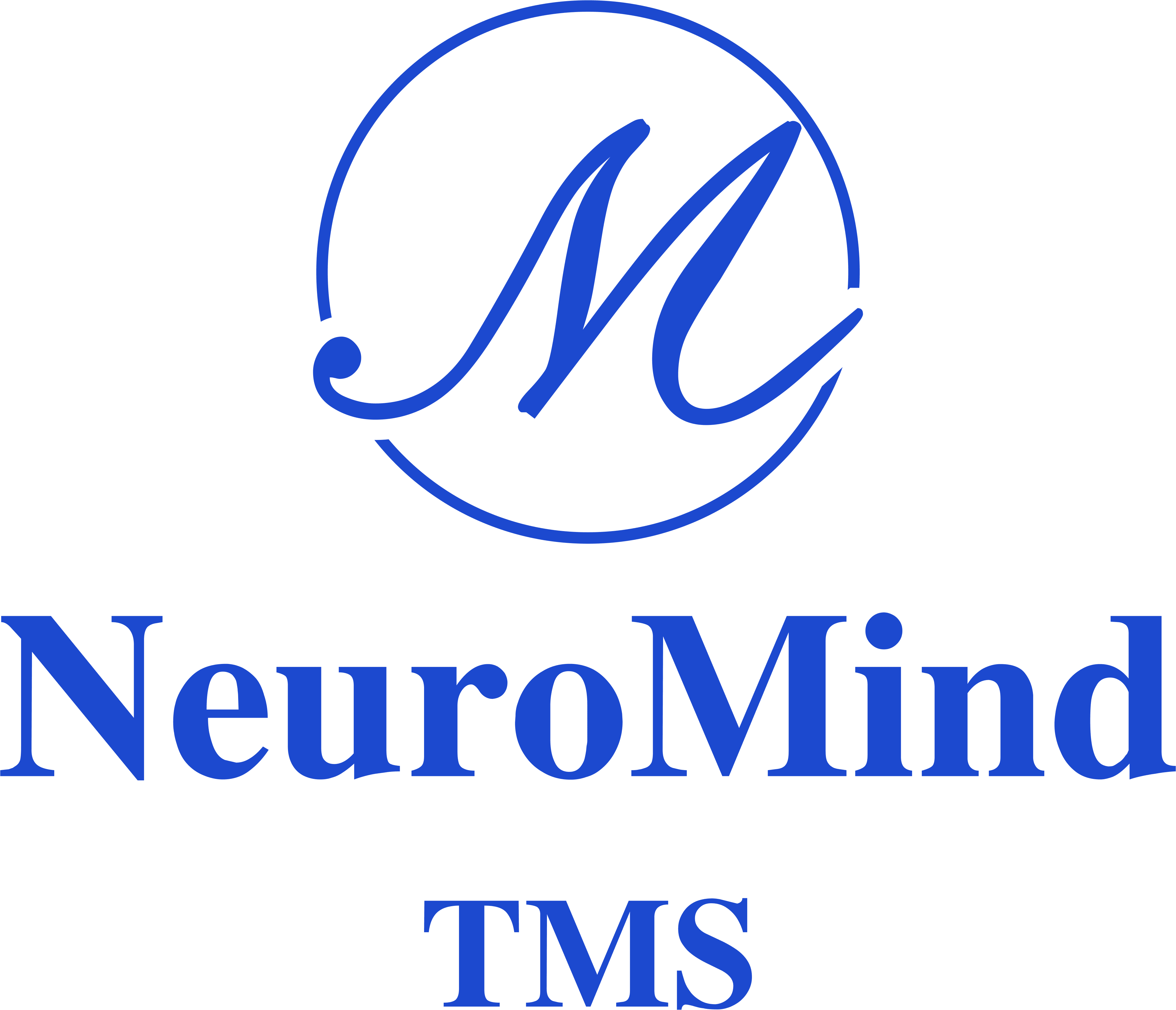Counselling CBT by NeuroMind TMS
Counselling CBT (Cognitive Behavioral Therapy) are two commonly used therapeutic approaches in the field of mental health. When combined with NeuroMind Transcranial Magnetic Stimulation (TMS), they can provide a comprehensive treatment plan for individuals suffering from various mental health conditions.
Before getting CBT for anxiety and depression, You should know, how counseling and CBT, along with NeuroMind TMS, can be utilized in the treatment process:
Initial Assessment: The treatment process begins with an initial assessment conducted by a qualified mental health professional, such as a psychiatrist or psychologist. The assessment aims to gather information about the individual’s symptoms, medical history, and overall mental health status.
Diagnosis and Treatment Planning: Based on the assessment, the mental health professional makes a diagnosis and develops an individualized treatment plan. This plan may involve a combination of counselling, CBT, and NeuroMind TMS, depending on the specific needs of the individual.
Counselling: Counselling is a form of talk therapy where individuals can explore their thoughts, feelings, and experiences in a safe and supportive environment. A trained counsellor or therapist uses various techniques to facilitate self-exploration and help individuals gain insights into their emotional challenges.
Cognitive Behavioral Therapy (CBT): CBT is a structured form of psychotherapy that focuses on the relationship between thoughts, feelings, and behaviors. It helps individuals identify and change negative patterns of thinking and develop healthier coping mechanisms. CBT sessions typically involve setting goals, identifying and challenging negative thoughts, and learning and practicing new coping strategies.
Cognitive Behavioral Therapy: A Cure to many Mental disorders
CBT is the most effective cure for depression and anxiety
CBT psychotherapy, or Cognitive Behavioral Therapy, is an efficient and helpful program of NeuroMind used to deal with a range of mental health issues, including depression and anxiety. CBT is a very systematic psychotherapeutic approach that typically requires fewer sessions than other forms of therapy. CBT seeks to demonstrate how your thoughts affect your mood. Our Cognitive behavioral therapy for mental disorders is quite well-known and influential in Delhi, as it trains you to be less pessimistic about yourself and your life.
The Cognitive therapy techniques Neuro Mind Doctors Uses are practical approaches to addressing emotional issues. Sometimes, this self-cognitive therapy works best when paired with other treatments, such as antidepressants or medicines. Cognitive-behavioral therapy for depression and anxiety focuses on teaching individuals how to be their therapists.
Cognitive Behavioral Therapy in Delhi at Neuromind
Cognitive behavioral therapy (CBT) is a well-known form of talk therapy. It consists of two therapeutic approaches:
- Cognitive therapy
- Behavioral therapy
With a systematic combination of both therapies, NeuroMinds cognitive behavioral therapy treats a variety of mental health issues, including depression, anxiety disorders, dependence on drugs and alcohol, marital troubles, eating disorders, CBT therapy for ocd, and severe mental diseases. People of all ages, including children, can benefit from CBT.
NeuroMind provides specialized counseling CBT or cognitive Behavioral Therapy to help and assist people in overcoming their mental health problems, including depression, anxiety, and others in Delhi.
NeuroMind’s Cognitive behavioral psychologists systematically teach you how to identify and challenge negative and problematic thinking and provide the proper aid, including practical self-help tools. Cognitive-behavioral therapy for depression and anxiety is intended to produce instant beneficial changes in your standard of life.
NeuroMind’s trained CBT psychologists will help you better understand and overcome the obstacles limiting you from living a fulfilling, healthy, stress-free life.
CBT for different Mental Disorders
Evidence-based cognitive behavioral therapy, or CBT, is an effective and helpful therapy treatment for various mental disorders. With depression, CBT emphasizes positive thinking and behavioral engagement while addressing negative thought processes.
Its coping mechanism includes relaxation methods and uses exposure treatment methods to address worries in patients with anxiety. Cognitive behavioral therapy for anxiety is commonly regarded as the “gold standard,” with no other therapy having as much research to support its efficacy.
NeuroMind Phycholoigsts CBT uses patients’ help in exposure and response prevention to deal with obsessive behaviors and intrusive thoughts in OCD patients. CBT assists in processing painful memories and creating flexible coping mechanisms for PTSD.
CBT treatment promotes healthy habits by addressing dysfunctional ideas about food and body image in eating disorders. Overall, CBT promotes long-term mental health by enabling people to identify and overcome harmful beliefs and behaviors.
Neuromind’s Cognitive behavioral therapy psychiatrists help to treat a variety of psychological issues of patients in Delhi, including:
- Anxiety disorders, including panic disorder and phobia
- Depression
- Bipolar disorder
- Eating disorders, including bulimia, anorexia, or binge eating disorder
- Post-traumatic stress disorder (PTSD)
- Hypochondria
- Cognitive therapy for OCD (obsessive-compulsive disorder)
- Schizophrenia
Apart from these mental issues, Cognitive behavioral therapy can also help the person suffering from:
- Relationship difficulties
- Breakup or divorce
- A serious health diagnosis, such as cancer
- Grief or loss
- Chronic pain
- Low self-esteem
- Insomnia
- General life stress
How can Neurominds Psychiatrists help patients with CBT?
Opting for CBT for depression can help a person by providing tools for challenging negative thoughts and replacing them with more realistic and optimistic cognitive processes.
In other words, our CBT techniques for depression can replace negative ideas with good ones in real time.
Cognitive therapy psychologists confront depressive thought patterns that lead to inaction or self-harming behaviors. They also assist the client in identifying and changing the behaviors that are contributing to their depression. Some may feel the results after a few sessions, while some individuals need more sessions to overcome their disorder. Cognitive behavioral depression is used by our psychiatrist in conjunction with other treatments for depression, such as antidepressants or other drugs, for more effect.
Goods & Bads of CBT
Cognitive therapy for anxiety, depression & other mental disorders can help you to a great extent. By making your difficulties more manageable, CBT can help you shift your negative thought habits and feel better. You will become more conscious of your feelings, ideas, and behaviors with the support of cognitive behavioral therapy. Most people change their lifestyles for the better after CBT. Stressful circumstances cannot be eradicated, but you can respond to them more constructively and feel better with CBT.
Because cognitive behavioral therapy (CBT) is highly organized, we offer it to our patients in various settings, such as groups, computer programs, and self-help books.
After our CBT therapy, patients could have a modest increase in emotional distress throughout treatment, depending on their circumstances. You can go through the initial stages where you feel more nervous or emotionally uneasy since CBT may require you to face your feelings and fears. You and Neuromind can work through these emotions, and you can overcome destructive emotions by learning new skills with us.
Working of CBT
CBT is mainly founded on the notion that your thoughts, emotions, and actions are interconnected. It offers a supportive, non-judgmental, and safe setting in which you can speak honestly with our CBT psychiatrist, who is impartial and adequately qualified to assist you with the challenges you are experiencing.
Some types of CBT psychotherapy involve looking back in time to comprehend current experiences better. Instead, CBT focuses on existing ideas and beliefs. It frequently helps you improve, although the process might be challenging. CBT typically takes time and may include difficult work.
In the first session, you will briefly describe your challenges and expectations. That serves as the foundation for discussing therapy goals and treatment plans. If your personal goals change during therapy, our specialist can alter the strategy accordingly.
Relaxation exercises, stress pain reduction techniques, and specific problem-solving tactics are all part of cognitive behavioral therapy.
Some patients feel significantly better after just a few sessions, while others require treatment for several months. Various factors determine this, including the nature and severity of the difficulties.
Finding the Best CBT Therapist in Delhi?
In Delhi, if you are looking for the right therapist for your CBT as per your need, then it is no longer a difficult task.
Our trained and experienced therapist at NeuroMind TMS can help you cope with these mental disorders with highly organized CBT programs. Here we are focused on identifying and transforming the negative patterns of the patients with a highly organized approach thus helping them to lead a better life. Under the guidance of well-trained and experienced therapists at NeuroMind’s CBT, we help you explore your thoughts in a more positive environment. Our therapists use several techniques like cognitive restructuring, problem-solving, and behavior activation as per the needs of the individual for their overall well-being. At NeuroMind’s CBT for anxiety program, individuals are also equipped with practical strategies to manage anxious thoughts and reduce avoidance behaviors.
Talk to us about your CBT therapy session queries, and our psychiatrist will resolve them for your better mental health.
NeuroMind offers specialized Counselling CBT (Cognitive Behavioral Therapy) services designed to help individuals overcome various mental health challenges such as anxiety and depression. With a strong emphasis on evidence-based practices, NeuroMind’s CBT therapy combines cognitive and behavioral approaches to promote lasting positive change.
The skilled therapists at NeuroMind TMS utilize the principles of Cognitive Behavioral Therapy, commonly known as CBT, to address and alleviate the symptoms of anxiety and depression. By focusing on the connection between thoughts, feelings, and behaviors, this approach aims to identify and modify negative patterns that contribute to mental health difficulties.
During CBT sessions, clients work collaboratively with experienced professionals who provide a safe and non-judgmental space to explore their thoughts and emotions. Therapists employ various techniques tailored to each individual’s needs, including cognitive restructuring, problem-solving, and behavior activation, to promote healthier coping mechanisms and improve overall well-being.
NeuroMind’s CBT for anxiety equips clients with practical strategies to manage anxious thoughts and reduce avoidance behaviors. Through targeted interventions, individuals learn to challenge and reframe negative thinking patterns, develop relaxation techniques, and gradually confront feared situations, enabling them to regain control over their lives.
In the case of CBT for depression, NeuroMind therapists assist clients in identifying and altering negative thoughts and behaviors that contribute to low mood and feelings of hopelessness. By teaching effective coping strategies and promoting healthier lifestyle choices, this approach aims to foster resilience, increase motivation, and enhance overall emotional well-being.
NeuroMind’s commitment to evidence-based practices ensures that clients receive high-quality CBT therapy tailored to their unique needs. With a focus on empowering individuals to become active participants in their own mental health journey, NeuroMind’s Counselling CBT service provides a supportive environment for growth, healing, and lasting positive change.
Frequently Asked Questions (FAQs)
We have submitted a FAQs list that people always ask us
How does TMS therapy work
How much does TMS therapy cost in Delhi?
What are the side effects of TMS therapy?
Video Testimonials by Patient
Testimonials by Patient










With access to
24 Hour
APPOINTMENT
Assistance
Our 24-hour appointment is available for everyone whenever urgent situations arise. Get essential care even during evenings, weekends, holidays, or other non-standard times.



